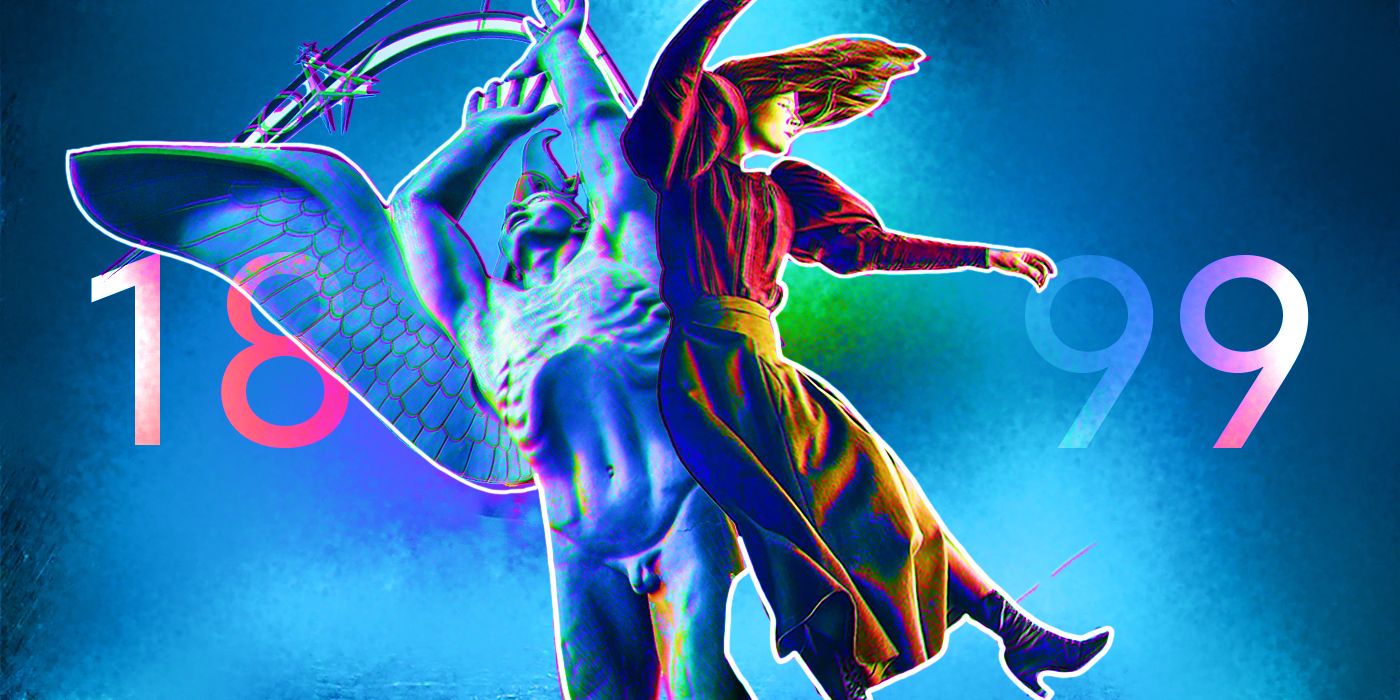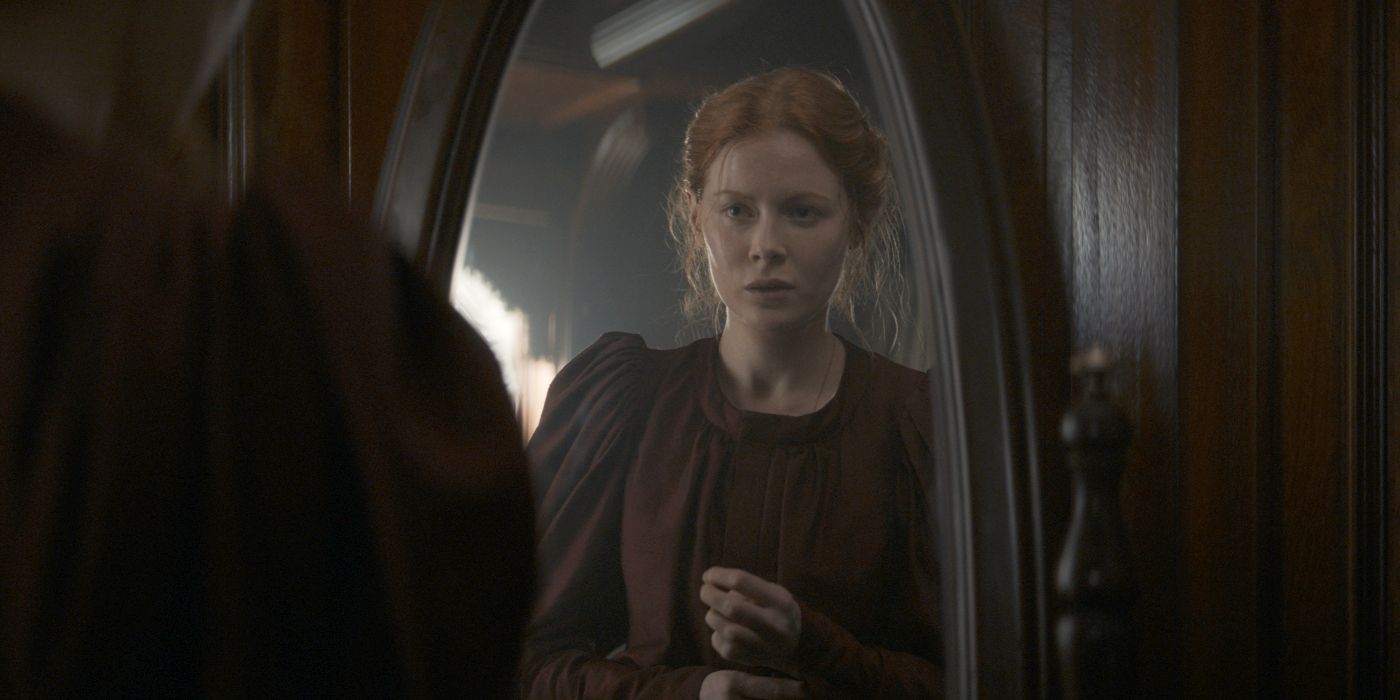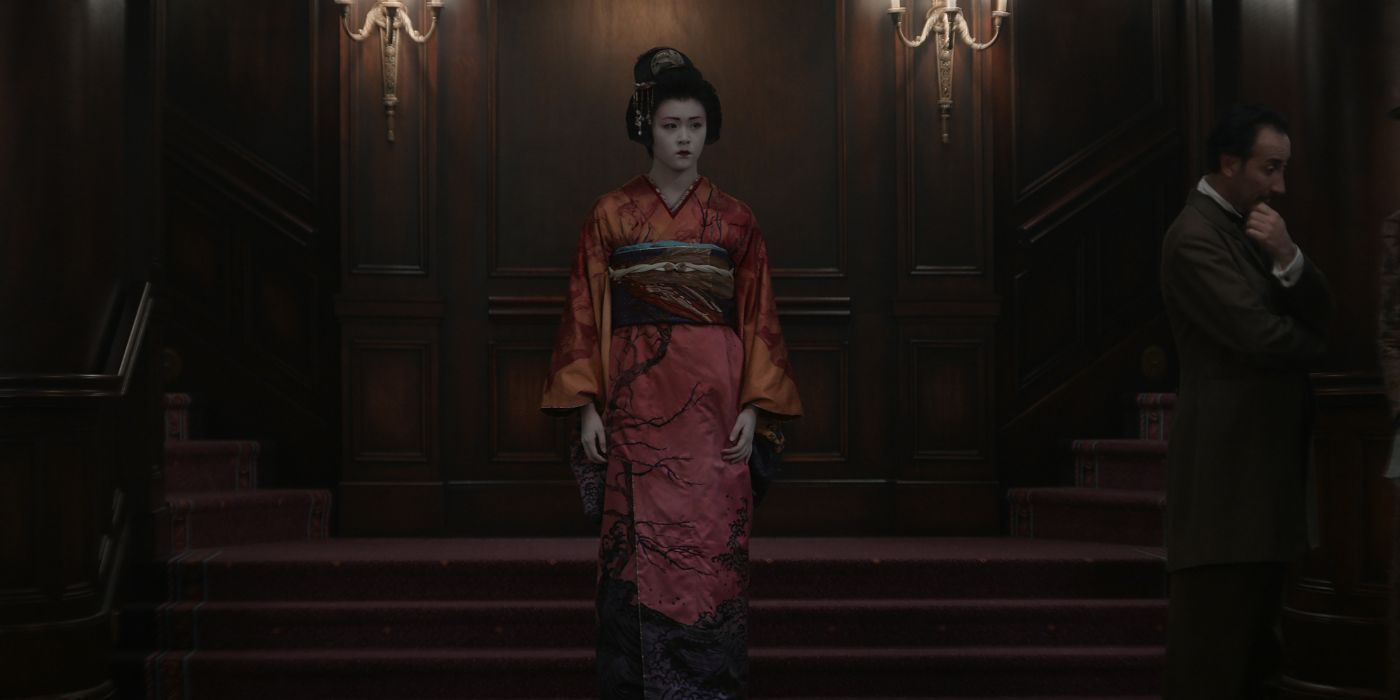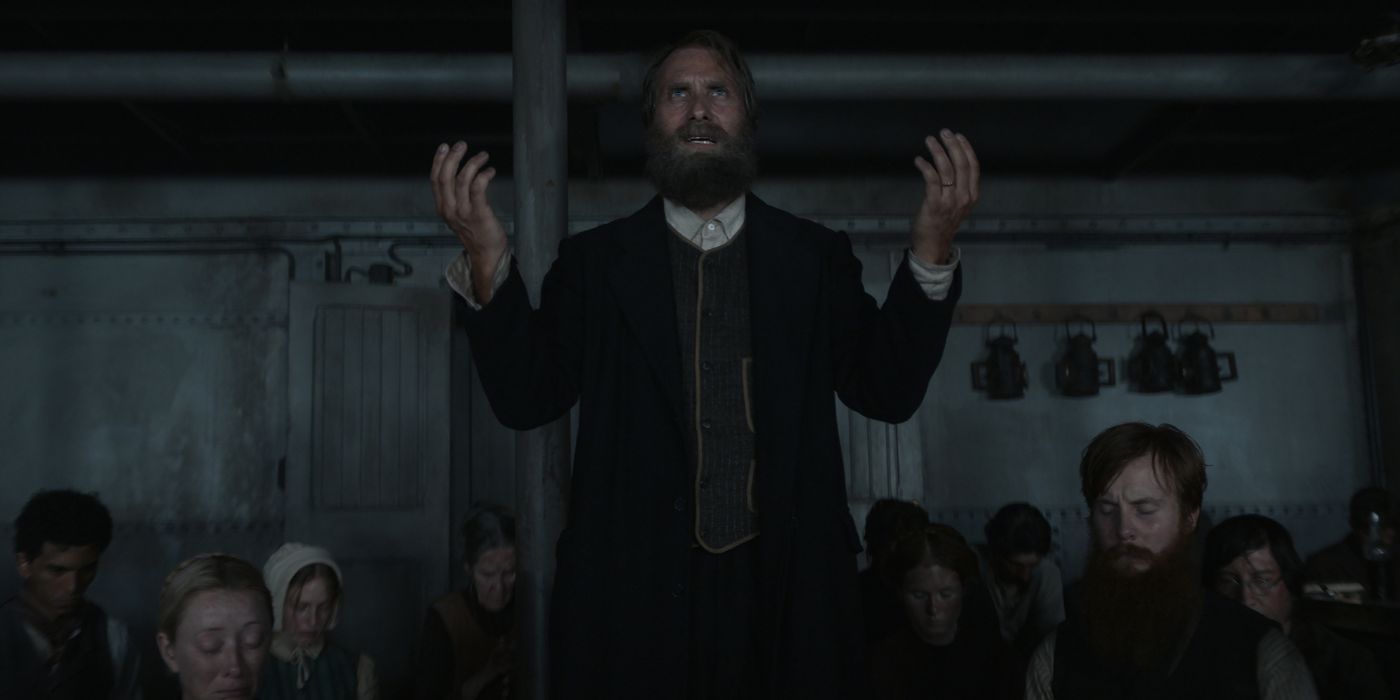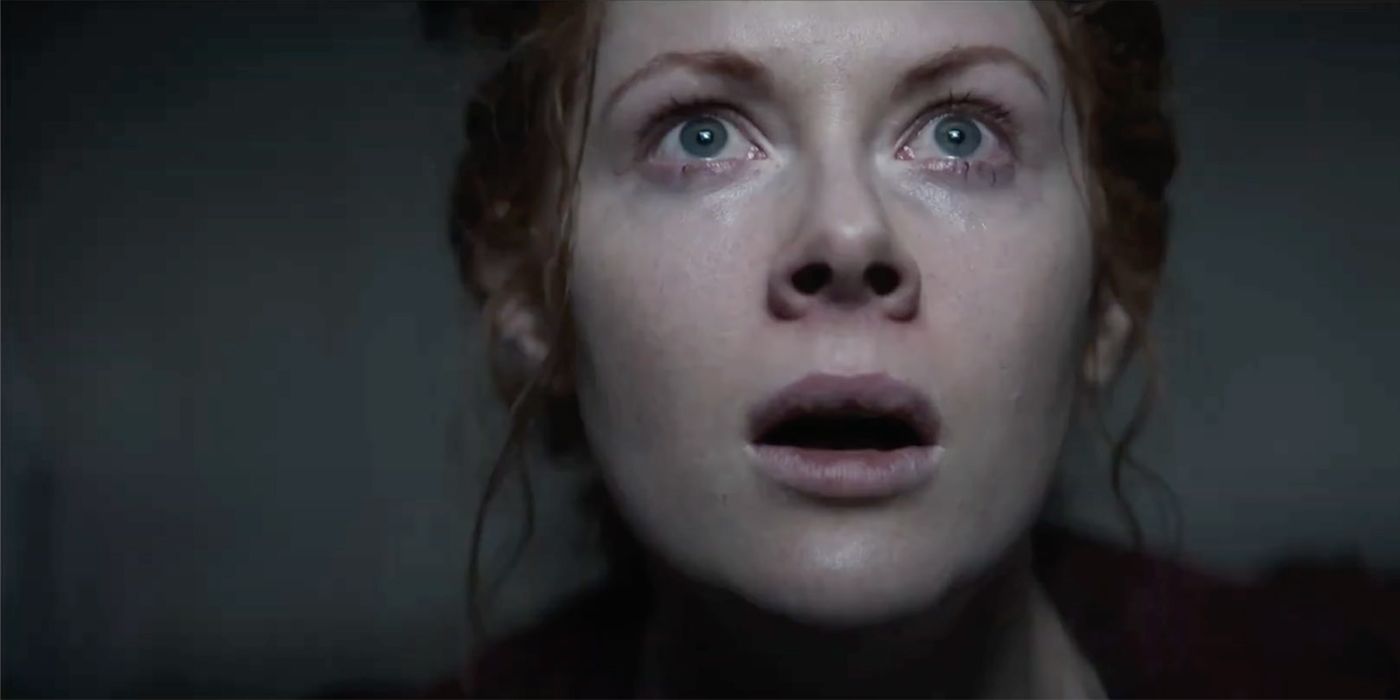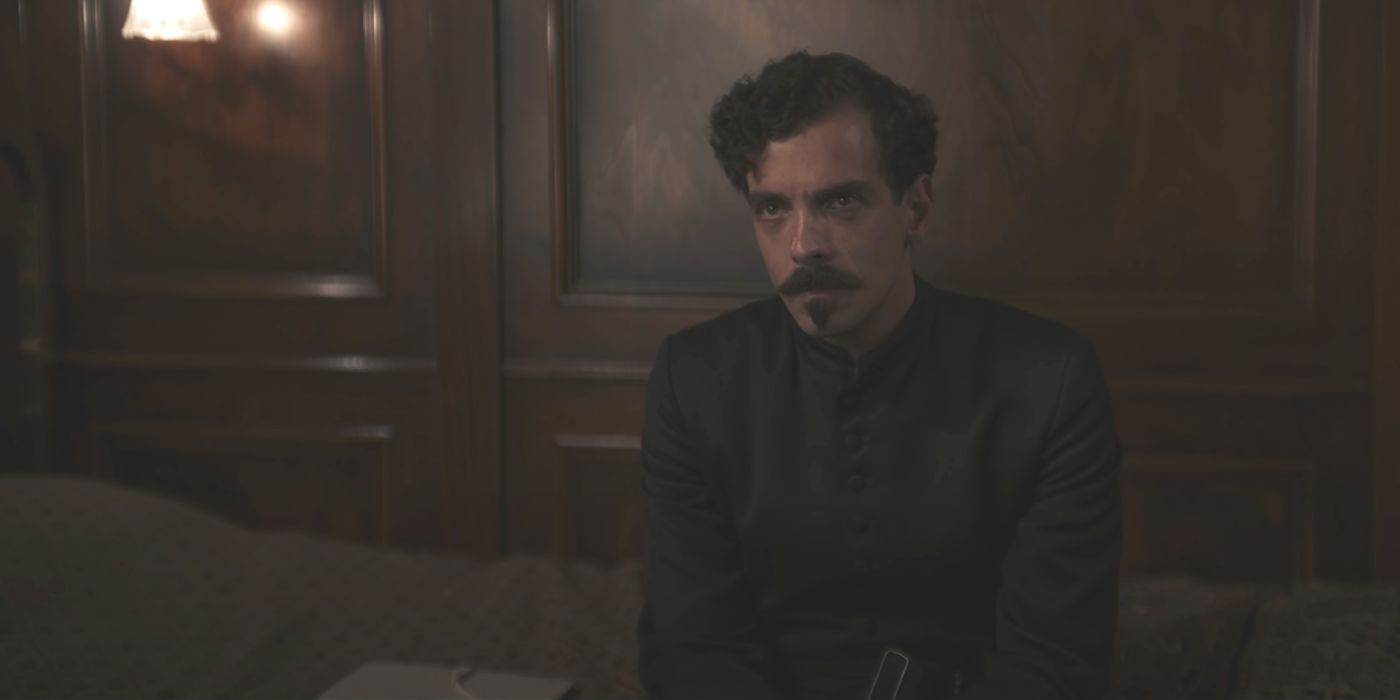Editor's Note: The following contains spoilers for Season 1 of 1899.While Dark creators Jantje Friese and Baran bo Odar's 1899 manages to create quite a mythology of its own through its 8 episodes, much of it is derived and inspired from known stories in Greek mythology. Arguably, the foundational principles behind the events and setting of the latest story from the creators of Dark find their strength in the Greek mythological elements and events that inspired them. 1899's primary mystery revolves around the missing steamship named Prometheus, and the majority of the events take place on another steamship named Kerberos. It's not merely a coincidence that both names have been derived from Greek mythology. The ships themselves become a metaphorical storytelling device for the makers to keep the reality in front of the audience yet let the mystery take over in glorious fashion. Much like the experience of the passengers of Kerberos, these Greek mythological references in 1899 help shroud the truth even while keeping it in eyesight and at an arm's distance. A peek into the multiple Greek references holds the key to decrypting the many hidden meanings scattered throughout Season 1 of 1899.
The Prometheus is a steamship that has been missing for four months along with all its passengers. Upon receiving a mysterious message from the long-lost Prometheus, the captain of Kerberos, another ship en route to America, Eyk Larsen decides to go searching for Prometheus. Coincidentally, Prometheus is also owned by the same businessman who owns Kerberos - an Englishman named Henry Singleton (Anton Lesser). With time, it's revealed that the fates of Kerberos and Prometheus are more interlinked than first assumed by Captain Eyk (Andreas Pietschmann) and Maura Franklin (Emily Beecham), a trained physician who decided to onboard Kerberos after receiving a cryptic envelope from her brother, Ciaran.
As the layers of 1899's puzzling mystery unfold, it becomes clear that Prometheus and Kerberos share a deeper connection than what was assumed by Eyk and Maura at first. Once the pieces of the puzzle start aligning, it becomes evident that Prometheus and Kerberos, both names inspired by Greek mythology, also share a symbolic and metaphorical connection that links them to the larger mystery developing in the background. Importantly, by the time Season 1 of 1899 runs its course, it is established that the names of the ships are not the only Greek inspirations borrowed by Jantje Friese and Baran bo Odar.
Significance of Kerberos and Its Connection to Greek Mythology
In 1899, Kerberos is the passenger ship en route to New York. The ship is owned by the British investor, Henry Singleton, who also turns out to be the father of Maura Franklin. Kerberos deviates from its set route when Captain Eyk decides to look for Prometheus. While this deviation seems to be a matter of choice by the captain, it becomes clear by the end that there was no choice in reality as Kerberos was never supposed to reach its destination successfully. When Maura realizes finally that she and the rest of the passengers are stuck in a simulation, the real significance and the meaning behind Kerberos come forth.
Kerberos is the Greek name of the three-headed hound Cerberus from Greek mythology. Often referred to as the hound of Hades, the king of the Underworld, Cerberus is a mythical dog mentioned in Hesiod's Theogony that guarded the doors of Hades' Underworld, preventing any soul from returning to the world of the living. Among his many forms, he is mostly known for his appearance as a ferocious dog with three heads and a mane of snakes. Cerberus serves as an interesting inspiration for the name of the passenger ship in 1899. Unlike what guard dogs usually do, Cerberus does not stop people from coming into the underworld rather its main duty is to stop desperate souls from escaping Hades' kingdom. This is exactly where Cerberus serves as an apt choice for the name of the passenger ship that basically serves as a prison for the characters.
As revealed later, the experiences of the passengers of Kerberos are not real and are a result of the situations being presented to them inside a simulation. Through the course of the episodes, all the primary characters are seen going through harrowing hallucinations and memories of their pasts as their journey on Kerberos progresses. When Daniel reveals to Maura that their experiences are merely part of a simulated loop, Maura realizes that Kerberos is a means for the Creator to keep the passengers stuck in a fictitious reality through the passengers' repetitively wrong choices.
In Episode 8, upon being questioned by Maura, none of the other passengers remember how they onboarded the ship. It is at this moment that the collective realization dawns upon the surviving few that while they retain certain horrific memories of their past, they do not remember anything about their decisions to onboard Kerberos. Much like the three-headed hound, Kerberos serves the same purpose of keeping the passengers trapped inside the simulation created by the Creator, who turns out to be Maura in the end.
While Cerberus kept the souls from escaping the dreaded life of Hades' hell, Kerberos keeps the participants of the simulation trapped inside the simulation, taking them through an emotional hell again and again as they are exposed to possibly fake yet traumatizing memories of their unpleasant past. With each cycle ending and starting again, the passengers find themselves again on Kerberos without knowing that they have been trapped on the ship forever. In essence, while the characters are shown trying to go to America for varied reasons in an attempt to escape their past, they do not realize that the very transport they are traveling on is keeping them imprisoned.
Prometheus Captures the Eternal Torment of Kerberos' Passengers
The missing Prometheus, another ship from the same fleet bought by Henry Singleton, serves as the primary point of mystery in 1899. Even before Captain Eyk decides to steer toward Prometheus, the missing ship is a hot topic of conversation among the passengers on the steamship. Unlike Cerberus, Prometheus' legend is more famously known among movie fans, thanks to Ridley Scott's 2012 science fiction film Prometheus. In ancient Greek mythology, Prometheus is a Titan who is most famously associated with his act of stealing fire from the gods and giving it to humanity. But in 1899, Prometheus serves dual functions as it's not only the name of the missing ship inside the simulation but also the name of the spaceship on which Maura finds herself after waking up from her slumber.
The Trick at Mecone serves as the inspiration for how the legend of Prometheus is implemented to drive the story of 1899. According to Greek poet Hesiod's Theogony, a meeting was held between the gods and the men at Mecone to decide on the division of sacrifice between gods and men. During this meeting, Prometheus famously tricked Zeus, leading to the events which connect the threads of this Greek mythological story with those of the events of the Netflix series. Prometheus presented before Zeus a slain large ox which was divided into two piles. In one pile, he placed most of the meat covered beneath the ox's disgusting stomach, and in the other, he placed a pile of bones wrapped with glistening fat. With the latter option obviously appearing as the more appealing choice, Zeus ended up choosing the pile of bones and being robbed by the pile that had the more meat.
To take revenge on humankind, Zeus then decided to hide the fire from them. However, the fire was returned to humankind by Prometheus soon after, but he had to face the wrath of the Greek god for going against him. As a punishment, Prometheus was chained to a rock and an eagle was sent every day to eat Prometheus' immortal liver, which would grow back every night. Prometheus was ill-fated to go through the same torment every day of his life as the eagle would return to eat his liver. This eternal torture faced by Prometheus is quite similar to the emotional torture faced by the participants of the simulation who keep experiencing the horrors of their past. Similar to Prometheus, the passengers of Kerberos are bound to go through the same pain that is possibly a consequence of their past choices. While the reason why the passengers chose to enter the simulation was not revealed in Season 1, it is a strong possibility that it could have been a sacrifice they willingly made for the greater good, much like the Titan Prometheus. It can also be doubted whether the terrifying memories the passengers experience are real or whether they were planted as a punishment or experiment.
Is Maura the Prometheus of 1899
Interestingly, the naming of the missing ship is not the only connection Prometheus shares with 1899. Over time, as per Western classical tradition, Prometheus has become a figure who represents the human search for enlightenment and knowledge at the risk of dire and unintended consequences. Prometheus is also a symbol of how the human attempt to seek knowledge more often than not results in tragedies. Mary Shelley's Frankenstein is inspired by the same philosophical motivation that led Victor Frankenstein to create a monster in the search of scientific excellence.
In 1899, Maura represents the same notion that Prometheus represents. When it's revealed by Henry Singleton that Maura was the one who created the simulation, the intentions behind her actions also come to the front. In a desperate attempt to keep the memory of his dying son alive, Maura chose to create the simulation as she realized that her son would be alive as long as she makes herself believe that he is. While motivated by personal motivations, Maura's creation of the simulation was a leap for knowledge that resulted in dire consequences, just like Prometheus.
Importantly, as the creator of the simulation, it's possible that she was aware of the possible situations if things went wrong, and yet she made the choice to proceed. As the role of Maura's brother Ciaran is still unclear, it remains a question after Season 1 whether Maura's simulation has paved a way for a greater tragedy, which may materialize in Season 2. The use of the simulation by Ciaran could turn out to be a classic case of how a scientific invention can be turned into a weapon of destruction, depending on the will of the wielder of such an invention.
Without a doubt, the mythologies of Cerberus and Prometheus lend heavily to the world-building implemented by Jantje Friese and Baran bo Odar in 1899. Although distinct elements of Greek mythology, the three-headed guardian of hell Cerberus, and the champion of humanity Prometheus align together remarkably well with the science-fiction setting of the series' story. It will be interesting to see whether events in Season 2 will continue to tread along similar lines. As per Greek mythology, Prometheus was saved from his eternal torment by Heracles (or Hercules) when he killed the eagle. If the makers possibly decide to follow the same line, it can be hoped that all is not lost for the ones who are yet to escape the simulation that's being controlled by Ciaran for reasons unknown.

